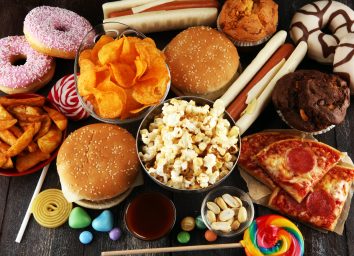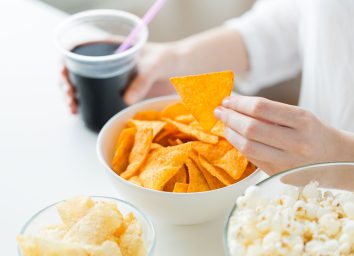5 Ways to Stop Overeating Right Now, Says Psychologist
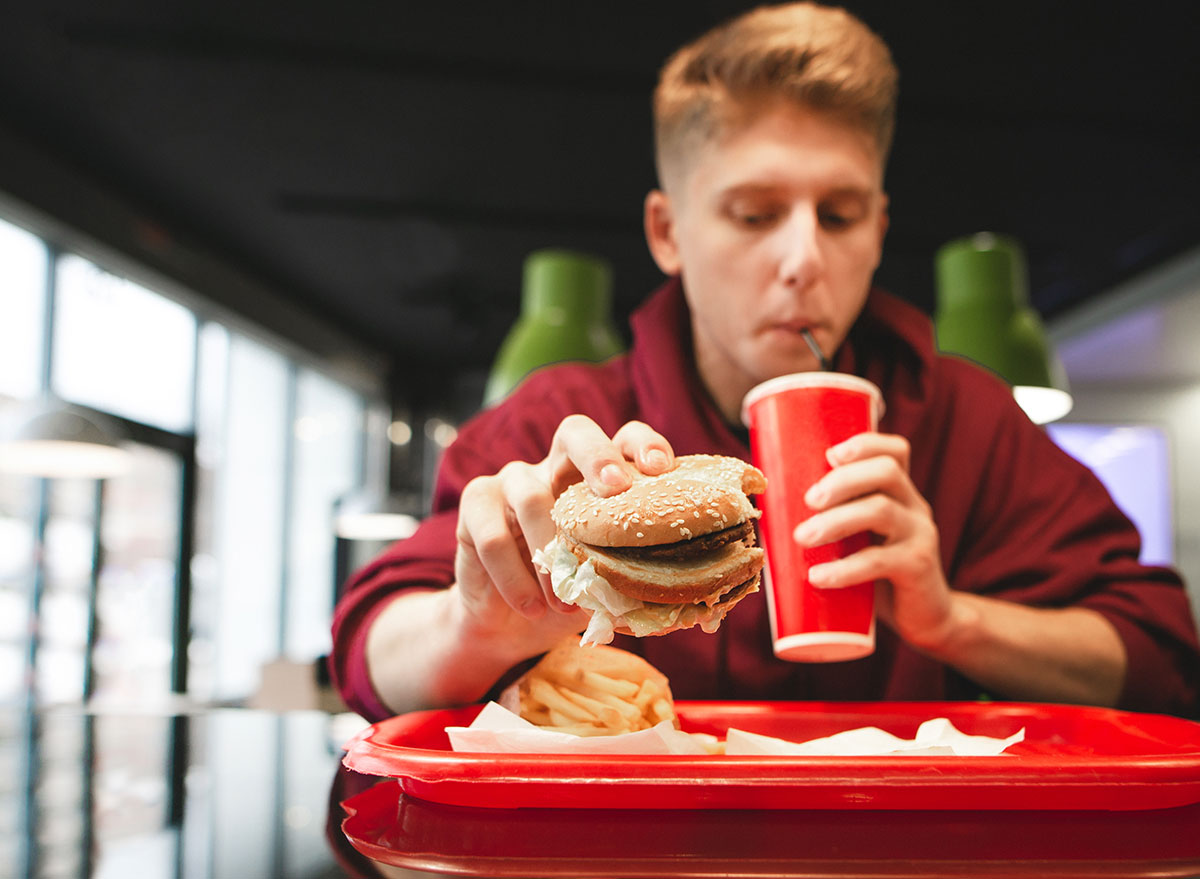
The pandemic caused all of us to go a little out of control with our eating habits—and for valid reasons! However, instead of trying to test out a crash diet (which isn't sustainable and often causes stress) why not try consciously unlearning the habits you picked up during quarantine?
In a recent survey executed by Google and supervised by Glenn Livingston, PhD, psychologist, and author of "Never Binge Again," it was found that Americans, on average, consumed 4,200+ extra calories per week due to COVD-19.
"Many are planning to fix the problem by dieting their weight off when this is all over. Unfortunately, using food to soothe trauma during the pandemic creates a strong link between emotions and overeating which may last long after COVID ends," Livingston states in the survey. "Dieting after this experience can stress the individual and trigger the link, thereby creating worse (and more frequent) overeating episodes."
Below, you'll see five steps Livingston suggests you follow to help break your overeating habit in a sustainable, healthy way instead of starting a diet that's destined to fail.
Set boundaries around "trigger" foods.

Similar to how you may set boundaries with an ex-partner, why not try applying that same concept to foods you're in the midst of trying to break up with?
"There's a big difference between saying 'I'm going to try to avoid eating too many potato chips' vs. 'I will only eat potato chips on weekends, and never more than one small bag per day,'" says Livingston. "The former has no objective boundaries and is therefore vulnerable to influence by the emotions running rampant in the pandemic. Plus, without boundaries, one needs to make constant decisions about potato chips whenever the urge strikes—and that wears down your willpower."
Stack your kitchen with plenty of healthy foods.

Now that you're only saving the potato chips for the weekend, make sure to fill your pantry, refrigerator, and freezer with plenty of healthy options. As Livingston points out, this will help combat feelings of food scarcity which—whether you realize it or not—is a result of your primitive brain sending emergency signals (aka, "you're going to starve") that can severely cloud your judgment. In turn, it can also cause us to derail our healthy dietary patterns and avert back to unhealthy ones. Instead of risking your brain playing games on you, just make sure you keep up with your grocery haul so the kitchen's always stacked with options.
For tips, check out 7 Must-Buy Foods on a Healthy Grocery List, According to a Dietitian.
Identify why you're overeating.
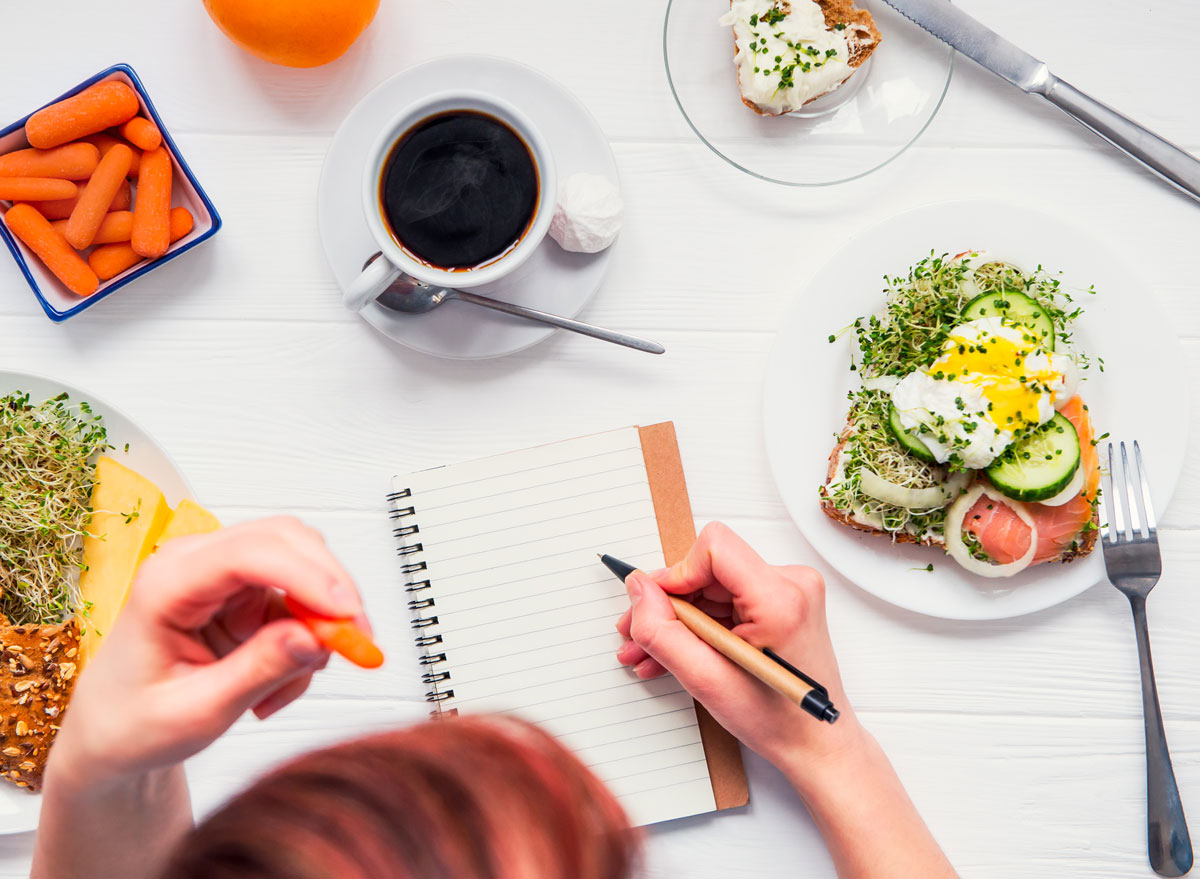
Recognizing that the reason you're overindulging in food is a habit you formed when trying to cope with feelings of loneliness, stress, and sadness during most of 2020 and the start of 2021 is critical for breaking the habit. After all, this habit is likely intensifying those feelings rather than solving them.
"Overeating not only destabilizes your blood sugar, saps your energy, and causes all sorts of physical problems, it breaks your spirit. Then, the cravings become stronger, and people feel progressively less capable of resisting," says Livingston. "Eventually, they feel hopeless and become truly addicted. It's therefore critical to change behavior as soon as one can, and not to wait for a declaration that the pandemic is officially over."
Eat and snack by design.
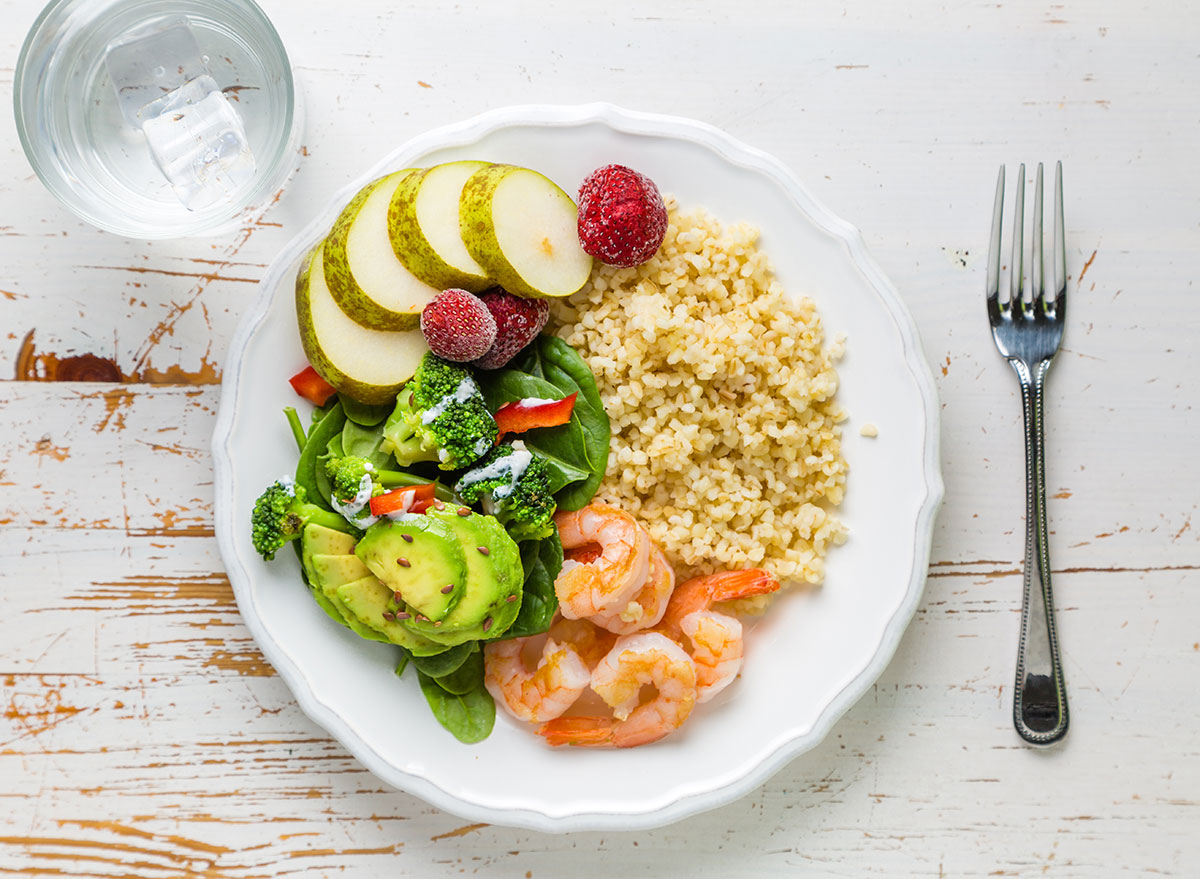
In order to cut ties with the emotions that fuel your overeating habits, Livingston suggests shifting from an "eat on a whim" to a "eat and snack by design" structure. Essentially, this just means you get to decide what time the meal starts and ends, how much time you get between meals, or maybe even how many calories each meal gets to be. You could even eyeball it and say that you'll allow yourself to have a fistful of shrimp, a half-plate of veggies, and the rest of the plate can be rice. Setting a loose set of rules can help you stay in line with your goals, but you set the rules!
Make sure you socialize daily.

Whether you're meeting a friend who lives nearby for a walk or virtually connecting with a family member who lives in another state, it's important that you keep social interactions frequent and consistent. This will not only help you keep your mind off of food, but research has shown that regular social encounters make us happier. Livingston also says that keeping your desktop camera on when meeting with friends, family, or even colleagues virtually may also play a role.
"In my practice, people who don't Zoom with their video on are having much more trouble with food," says Livingston. "That's because it's easier to fantasize you'll 'deal with the extra weight later' if nobody ever sees you."
For more, check out Weight Loss Tips Experts Wish You Knew About Sooner.
